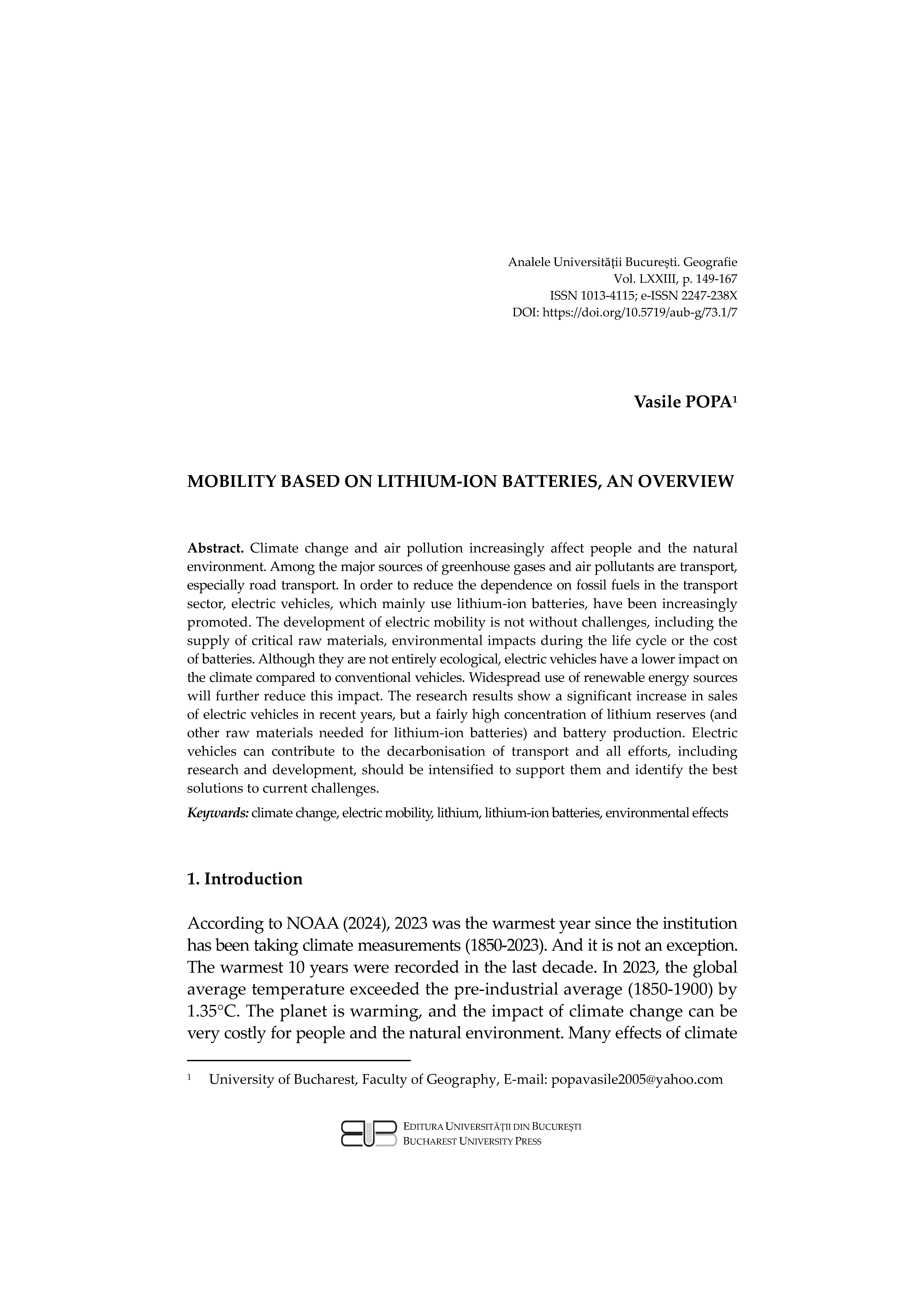MOBILITY BASED ON LITHIUM-ION BATTERIES, AN OVERVIEW
DOI:
https://doi.org/10.5719/aub-g/73.1/7Keywords:
climate change, electric mobility, lithium, lithium-ion batteries, environmental effectsAbstract
Climate change and air pollution increasingly affect people and the natural environment. Among the major sources of greenhouse gases and air pollutants are transport, especially road transport. In order to reduce the dependence on fossil fuels in the transport
sector, electric vehicles, which mainly use lithium-ion batteries, have been increasingly promoted. The development of electric mobility is not without challenges, including the supply of critical raw materials, environmental impacts during the life cycle or the cost of batteries. Although they are not entirely ecological, electric vehicles have a lower impact on the climate compared to conventional vehicles. Widespread use of renewable energy sources will further reduce this impact. The research results show a significant increase in sales of electric vehicles in recent years, but a fairly high concentration of lithium reserves (and other raw materials needed for lithium-ion batteries) and battery production. Electric vehicles can contribute to the decarbonisation of transport and all efforts, including research and development, should be intensified to support them and identify the best
solutions to current challenges.




